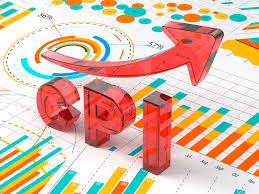Equipping professional accountants for sustainability
The International Federation of Accountants has developed a concise resource to guide accounting professionals and...
READ MORE
The consumer price index (CPI) rose 1.8 per cent in the June 2022 quarter and 6.1 per cent annually, according to the latest data from the Australian Bureau of Statistics (ABS) impacted by the rising cost of fuel and surging construction costs.

Head of prices statistics at the ABS, Michelle Marquardt, said the quarterly increase of 1.8 per cent was the second highest since the introduction of the goods and services tax (GST), following on from a 2.1 per cent increase last quarter.
The most significant contributors to the rise in the June quarter CPI were new dwellings (+5.6 per cent) and automotive fuel (+4.2 per cent).
“Shortages of building supplies and labour, high freight costs and ongoing high levels of construction activity continued to contribute to price rises for newly built dwellings. Fewer grant payments made this quarter from the Federal Government’s HomeBuilder program and similar state-based housing construction programs also contributed to the rise,” said Ms Marquardt.
“The CPI’s automotive fuel series reached a record level for the fourth consecutive quarter. Fuel prices rose strongly over May and June, following a fall in April due to the fuel excise cut.”
The price of goods (+2.6 per cent) continued to rise more strongly than that of services (+0.6 per cent). Notable rises were recorded across the food group (+2.0 per cent) and the furnishings, household equipment and services group (+2.5 per cent). Main contributors to the rise in food prices included vegetables (+7.3 per cent), meals out and takeaway foods (+1.4 per cent), and fruit (+3.7 per cent). Supply chain disruptions due to flooding events, labour shortages, and rising freight costs contributed to higher prices. Furniture prices rose (+7.0 per cent) due to increased transport and material costs, and stock shortages.
Services recorded a smaller rise compared with goods. Financial services (+1.2 per cent) and holiday travel and accommodation (+2.3 per cent) rose. Childcare (-7.3 per cent) fell as the full effect of additional childcare subsidies for families with two or more children under the age of six, which commenced on 7 March, flowed through into this quarter. Before and after-school care vouchers offered by the NSW government also contributed to the fall in childcare costs. Urban transport fares (-4.4 per cent) fell due to free travel periods introduced by the NSW and Tasmanian state governments within the quarter.
Annually, the CPI rose 6.1 per cent, with new dwellings (+20.3 per cent) and automotive fuel (+32.1 per cent) the most significant contributors.
“The annual rise in the CPI is the largest since the introduction of the goods and services tax (GST),” said Ms Marquardt.
“Annual price inflation for new dwellings was the strongest recorded since the series commenced in 1999.”